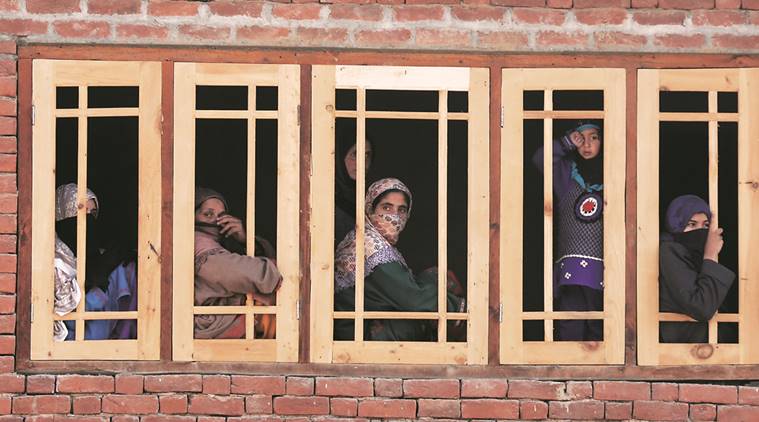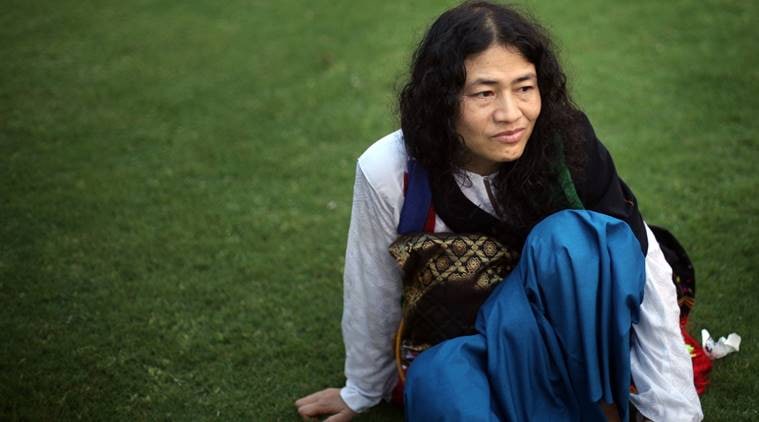( Photo Courtesy : Indian Express)
Guest Post by Gurpreet Singh
India which has always claimed to be a victim of terrorism for all these years owe answers for one of the worst terrorist incident that is hardly discussed by the anti terror activists across the world either due to silence over Hindutva violence or Islamophobia that continues to grow in the post 9/11 environment.
Ten years have passed as the families of the victims of Samjhauta blasts continue to wait for justice.
On February 18, 2007 explosions aboard Samjhauta rail express that connects India and Pakistan left 68 people dead and about 50 injured. At least 42 of the victims were Pakistani citizens most of them returning to their home country after visiting relatives in India. The rail service was started to connect the families divided by partition of India and Pakistan in 1947 and promote people to people contact between the neighbouring nations that have gone to two major wars in 1965 and 1971.
The Indian government had initially blamed Pakistan- based Islamic extremists for the incident. In fact, several Muslims were rounded up for investigation. The Indian establishment had claimed back then that this was done to undermine the relationship between the two countries by the radical Islamic elements in Pakistan. Not surprisingly, the media too accepted the narrative and the incident was taken as another instance of terrorism aided and abetted by a hostile neighbour from across the border. It seemed that everyone in India was convinced that it was a handiwork of the Jihadists killing their own Muslim brethren.
True. There is no dearth of such elements in Pakistan, but India too is home to Hindu radicals who do not want Indo-Pak relations to improve either. They too have been protesting in the streets against any peace initiative and efforts to strengthen economic and cultural ties between the two countries. But mainly because of the prejudices against Muslims and Pakistanis within the Indian intelligence and security agencies this scenario was completely overlooked or may be deliberately glossed over to give legitimacy to Hindu extremists. This is despite the fact that majority of victims were Pakistanis.
Thanks to the honest investigation by some thoroughly professional police officers, the network of Hindutva terrorists involved in the crime was unearthed. Several suspects were eventually rounded up as it was revealed that they wanted to turn India into a Hindu theocracy through armed uprising and creating fear in the minds of the Muslim minority. One of them Swami Aseemanand had confessed to his involvement not only in Samjhauta case, but other explosions as well. All these bombings were aimed at Muslim communities and their places of worship in different parts of India. He and his associates claimed that they were doing this to retaliate against the bombings of Hindu temples and communities by the Jihadi terrorists.
Interestingly, these startling revelations came when India was being ruled by the secularist Congress government that also wanted to isolate Pakistan internationally for supporting subversive activities on its soil. Since the existence of Hindutva terrorists weakened its case, the investigators were forced to look into other possibilities and rather go slow. Nevertheless, it was difficult to conceal the truth.
Unfortunately, things started moving into wrong direction ever since right wing Hindu nationalist Bhartiya Janata Party (BJP) came to power in 2014 under Narendra Modi. There were apprehensions that the prosecution and the courts might be pressurised to dilute the cases against these people. The first indication came when a former prosecutor Rohini Salian spilled the beans in 2015. She revealed that she was asked by the National Investigation Agency (NIA) that is handling these investigations to go slow against the Hindutva extremists. After all, BJP strongly believes in Hindutva – an ideology that sees India as a Hindu nation. There is every reason to believe that they have been patronising such elements for political considerations and shared ideology.
Modi – who was previously the Chief Minister of Gujarat is widely blamed for the 2002 anti Muslim massacre, though he was never charged. It is pertinent to mention that Modi had publicly condemned the arrests of Hindu activists in connection with the bomb blasts. So much so, he was pictured alongside Aseemanand at a public event. Aseemanand has once been active in Gujarat where he targeted Christian missionaries.
Another glaring instance of NIA’s lack of will to deal with Hindutva terrorists is the absence of the names of Hindu extremist outfits from its list of banned terror groups. Barring the Sikh, Muslim, Maoist extremist groups and those representing other sub nationalities, there is no mention of any Hindu nationalist group, including those involved in Samjhauta blasts on the list on its website. And if the latest development in one of the cases against Aseemanand is any sign, the current government certainly lacks will to punish them.
Only recently Aseemanand was acquitted in the Ajmer blast case. The October 2007 bombing had occurred near the famous Muslim shrine in Ajmer, Rajasthan that left three people dead and 15 injured. This was one of the many acts committed by Hindutva supporters to terrorise Muslims. Like in Samjhauta case that too was initially blamed on Pakistan -based Jihadi groups.
Reacting to his acquittal, Pakistan expressed its displeasure and asked India to bring perpetrators of the Samjhauta blasts to justice. In response to this, the Indian government accused Pakistan of interfering in its internal affairs.
One may argue that Indian judiciary can solely take care of such cases, but Pakistan is within its right to ask for the answers for an incident that left its citizens dead. If India is really worried about its image, it should rather set its house in order and deal with the Hindutva terror with a similar zeal that is shown while dealing with other terror groups. The least the Indian government can do to silence Pakistan or its domestic critics is punishing those guilty of Samjhauta blasts instead of giving them back door amnesty. This whole approach only reflects selective justice of the Indian state that lacks courage to stand up against majoritarian democracy and that’s the reason why Hindutva extremists have continued to grow over the years.
Instead of cursing Pakistan all the time and blaming it for terrorism within India, the Indian government should look hard at itself in the mirror. Even if one believes that terrorism is being fully supported from across the border, which is not deniable, India must take blame for providing reasons for compelling its citizens to become recruits for Jihadi movement. Particularly, the BJP and its cohorts are to be blamed for pushing the Muslims to the wall and forcing them to take to militant paths. They led a movement which led to demolition of an ancient Muslim mosque in 1992 and have been repeatedly harassing Muslims for eating meat and if nothing accusing them again and again of being Pakistani agents and unpatriotic. In a way, they themselves have been feeding the demon called Jihadi terrorism. The recent appointment of Yogi Adityanath – who is known for his anti-Muslim rhetoric as the Chief Minister of Uttar Pradesh following spectacular victory of the BJP in the assembly elections leaves no doubt that India is heading towards becoming a Hindu state. It is only a matter of time when the Indian constitution is amended to replace Hindutva with secularism as one of its preamble. All this suggests that Hindutva terror that resulted into tragedies like Samjhauta episode is not going to die soon and will continue to gain more acceptance under the Modi administration.
The argument that Pakistan is interfering into the internal matters of India is weak and speaks volume about the double standards of a government which had not very long ago showed its concern over the increased hate attacks on Indian immigrants in US. For the record, India has time and again raised eyebrows over the softness shown by Pakistani judiciary and the government toward Jihadi extremists involved in terrorist incidents within the Indian territories. Maybe India needs to be reminded that those who live in glass houses should never throw stones on others.
 The people of the Kashmir Valley have alternated between hope and despair. J&K has seen good times and bad times, but the present time seems to be the worst of times. (Representational)
The people of the Kashmir Valley have alternated between hope and despair. J&K has seen good times and bad times, but the present time seems to be the worst of times. (Representational)

